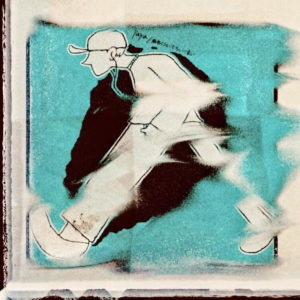Words And Music: Paya’s Yuutai Gurai De Chooudo Ii
The recent focus on pop music going “international” via K-pop and Latin pop has resulted in an interesting tension in how these songs get interpreted. How important are lyrics to this? They obviously are central, and no doubt that’s part of the appeal to listeners who actually are fluent in these languages. But a big celebratory point for listeners and media has been the ability for all of these songs to transcend language barriers. A bop is a bop in any tongue, right? But is that ignoring too much context from the original?
It’s a slight dilemma central to Kyoto artist Paya’s new album, a collection touted by a lot of folks online for its great lyricism. This isn’t a new issue for this blog — Japanese isn’t my first language, and I often need to spend dedicated time deciphering lyrics, just because it doesn’t always hit immediately. Taking some time with Paya’s set does reveal some pretty clever observations on life in the city, an issue central to the Japanese experience in 2019. It’s melancholy without slipping into the usual “ahhhh my childhood home, that was nice” so much weepy J-pop tends towards, and Paya peppers the songs with great details about weekly tabloids and desolate train stations.
But I think what makes this album click is actually how those words work in conjunction with the music, which ranges from easy-breezy playroom plonks on the opening number to the fidgety electronic drizzle of “Zuuto Haiiru,” a move that elevates otherwise downtrodden lyrics about everything being grey into something a little more lively. The whole album is like a stroll through the city, thoughts pouring out while one passes by the busy world around them. Spending time with the lyrics certainly elevates here…but Paya makes you want to make that investment because the music grabs you. Get it here, or listen below.
